Table of Contents
 Acclaim for Ha Jins
Acclaim for Ha Jins
WAITING
Achingly beautiful....Ha Jin depicts the details of social etiquette, of food, of rural family relationships and the complex yet alarmingly primitive fabric of provincial life with that absorbed passion for minutiae characteristic of Dickens and Balzac.
Los Angeles Times Book Review
A vivid bit of storytelling, fluid and earthy....Reminiscent of Hemingway in its scope, simplicity and precise language....A graceful human allegory. Chicago Sun-Times
A subtle beauty....A sad, poignantly funny tale.
The Boston Sunday Globe Impeccably deadpan.... Waiting turns, page by careful page, into a deliciously comic novel. Time
Spare but compelling....Jins craftsmanship and grasp of the universal language of the human heart make the book a worthwhile read. USA Today
A wry, lovely novel....Unexpectedly moving....So quietly and carefully told that...we read on patiently, pleasantly distracted, wondering when something will happen. Only when weve finished do we understand just how much has, and how much waiting can be its own painful reward. Newsday Enlightening...a delicate rendering of the universal complications of love....Ha Jins natural storytelling quietly captures the texture of daily life in a dual Chinese culture....No detail is extraneous in this sad, funny, and often wise novel.
The Village Voice Literary Supplement Remarkable... compellingly ingenious... gorgeously cinematic. The Philadelphia Inquirer
A wonderfully ironic novel... complex and sad as life....It captures the difficulties of love in totalitarian China with sharp prose and a convincing portrayal of human vagaries.
Minneapolis Star Tribune Subtle and complex... his best work to date. A moving meditation on the effects of time upon love. The Washington Post
[Jin] reveals some startlingly original insights on human life and love...in a narrative that dazzles the reader with its simplicity and grace. The Providence Sunday Journal
[ Waiting is] a masterpiece of realism and a work of ironic allegory, its mystifying, foreign world full of characters who grow more familiar with every page....Through an accumulation of small, deft brushstrokes, 20th century China is superimposed onto the landscape of an ancient, painted scroll. The Plain Dealer
A high achievement indeed. The New York Review of Books 
HA JIN WAITING
Ha Jin left his native China in 1985 to attend Brandeis University. He is the author of two books of poetry; three collections of stories, Under the Red Flag, which won the Flannery OConnor Award for Short Fiction in 1996, Ocean of Words, which won the PEN/Hemingway Award in 1997, and The Bridegroom; and In the Pond, a novel. Waiting, his second novel, won the 1999 National Book Award and the 2000 PEN/Faulkner Award. He lives near Atlanta, where he is a professor of English at Emory University.
ALSO BY HA JIN
fiction
Under the Red Flag Ocean of Words In the Pond
The Bridegroom
poetry
Between Silences Facing Shadows
vintage international vintage books
a division of random house, inc. new york
HA JIN
FIRST VINTAGE INTERNATIONAL EDITION, OCTOBER 2000
Copyright 1999 by Ha Jin
All rights reserved under International and Pan-American Copyright Conventions. Published in the United States by Vintage Books, a division of Random House, Inc., New York, and simultaneously in Canada by Random House of Canada Limited, Toronto. Originally published in hardcover in the
United States by Pantheon Books, a division of Random House, Inc., New York, in 1999.
Vintage is a registered trademark and Vintage International and colophon are trademarks of Random House, Inc.
The Library of Congress has cataloged the Pantheon edition as follows: Jin, Ha, 1956
Waiting / Ha Jin.
p. cm.
ISBN 0-375-40653-0
1. ChinaHistory19491976Fiction. I. Title. PS 3560. i6 W 34 1999
813'.54dc21 99-21334
CIP
eISBN: 0-375-72695-0
Author photograph Jerry Bauer Book design by Deborah Kerner
www.vintagebooks.com
v.1
for lisha
alone and together
WAITING
PR OL OGUE
E
very summer Lin Kong returned to Goose Village to divorce his wife, Shuyu. Together they had appeared at the courthouse in Wujia Town many times, but she had always changed her mind at the last moment when the judge asked if she would accept a divorce. Year after year, they went to Wujia Town and came back with the same marriage license issued to them by the countys registry office twenty years before.
This summer Lin Kong returned with a new letter of recom
mendation for divorce, which had been provided for him by the army hospital in Muji City, where he served as a doctor. Once more he planned to take his wife to the courthouse and end their marriage. Before he left for home, he had promised Manna Wu, his girlfriend at the hospital, that this time he would try his best to make Shuyu stick to her word after she agreed to a divorce.
As an officer, he had a twelve-day leave each year. Since the trip home took a whole dayhe had to change trains and buses at two townshe could stay in the countryside only ten days, saving the last day for the return trip. Before taking this years leave, he had thought that once home, he would have enough time to carry out his plan, but by now a whole week had passed and he had not yet mentioned a word to his wife about the divorce. Whenever the subject came to his tongue, he postponed it for another day.
Their adobe house was the same as two decades before, four large rooms under a thatched roof and three square windows facing south with their frames painted sky blue. Lin stood in the yard facing the front wall while flipping over a dozen mildewed books he had left to be sunned on a stack of firewood. Sure thing, he thought, Shuyu doesnt know how to take care of books. Maybe I should give them to my nephews. These books are of no use to me anymore.
Beside him, chickens were strutting and geese waddling. A few little chicks were passing back and forth through the narrow gaps in the paling that fenced a small vegetable garden. In the garden pole beans and long cucumbers hung on trellises, eggplants curved like ox horns, and lettuce heads were so robust that they covered up the furrows. In addition to the poultry, his wife kept two pigs and a goat for milk. Their sow was oinking from the pigpen, which was adjacent to the western end of the vegetable garden. Against the wall of the pigpen a pile of manure waited to be carted to their family plot, where it would go through high-temperature composting in a pit for two months before being put into the field. The air reeked of distillers grains mixed in the pig feed. Lin disliked the sour smell, which was the only uncomfortable thing to him here. From the kitchen, where Shuyu was cooking, came the coughing of the bellows. In the south, elm and birch crowns shaded their neighbors straw and tiled roofs. Now and then a dog barked from one of these homes.
Having turned over all the books, Lin went out of the front wall, which was three feet high and topped with thorny jujube branches. In one hand he held a dog-eared Russian dictionary he had used in high school. Having nothing to do, he sat on their grinding stone, thumbing through the old dictionary. He still remembered some Russian vocabulary and even tried to form a few short sentences in his mind with some words. But he couldnt recall the grammatical rules for the case changes exactly, so he gave up and let the book lie on his lap. Its pages fluttered a little as a breeze blew across. He raised his eyes to watch the villagers hoeing potatoes in a distant field, which was so vast that a red flag was planted in the middle of it as a marker, so that they could take a break when they reached the flag. Lin was fascinated by the sight, but he knew little about farm work. He had left the village for high school in Wujia Town at the age of sixteen.
Next page
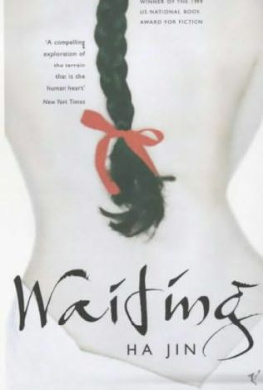
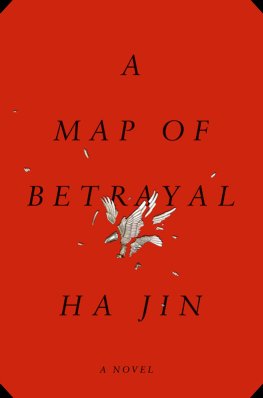
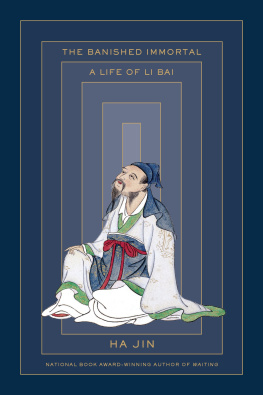
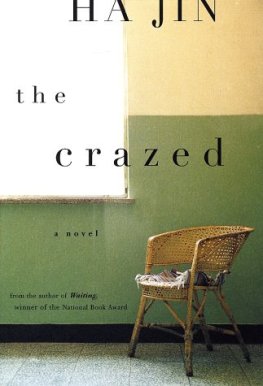
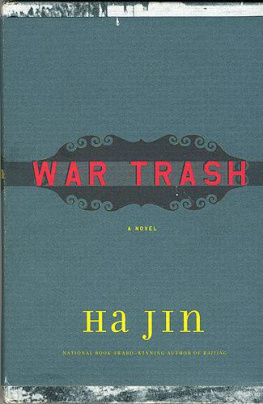
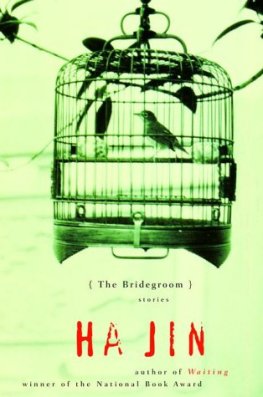
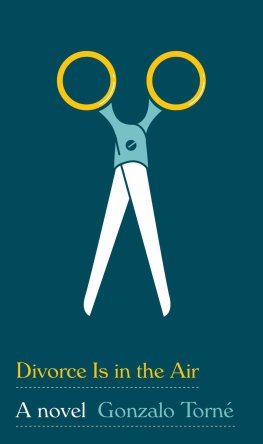




 Acclaim for Ha Jins
Acclaim for Ha Jins